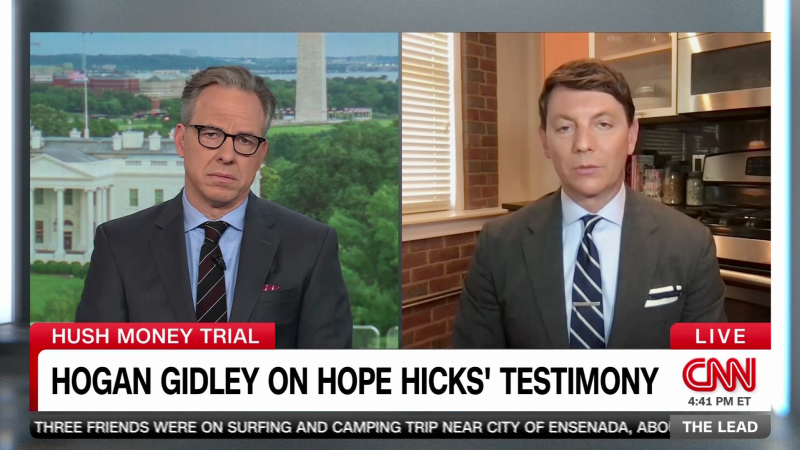The Supreme Court, which releases a batch of consequential opinions at the start of each summer, rolled through two days of new decisions last week without touching this term’s most explosive cases, setting up what could be a blockbuster final week.
Going into final days, the court still has not resolved cases that could outlaw affirmative action in higher education and quash or authorize President Biden’s $400 billion program to forgive student loan debt held by more than 40 million Americans.
Court watchers were also awaiting verdicts in cases pitting gay rights against speech rights and assessing whether state legislatures can evade state court reviews of their voting laws.
The stakes are high, and Americans holding their breath should not have to wait much longer. The court, which tends to release cases on Thursdays and Fridays, has added an opinion day for this Tuesday. Ten cases remain.
“They really like to be done with it by the end of June,” said Noah Feldman, a constitutional law professor at Harvard.
:quality(70)/cloudfront-us-east-1.images.arcpublishing.com/tronc/EZ6TXXQF7UXPQWV2WZHBW5DNHU.jpg)
Perhaps the most polarizing pending case centers on college admissions. In the fall, the Supreme Court, which has a 6-to-3 conservative supermajority, heard challenges to the use of race-conscious admissions policies at the University of North Carolina and Harvard.
The court has accepted the consideration of race in university admissions repeatedly over the last half century, most recently in a 4-to-3 ruling in 2016.
But the nine-member court was remade by former President Donald Trump, who appointed three conservative justices.
This court is widely expected to strike down affirmative action in a ruling that could have an expansive influence on student bodies at highly selective colleges and universities across the U.S.
A small collection of states — a group that does not include New York — has already banned affirmative action at public colleges. The largest, California, outlawed the practice through a 1996 referendum.
[ Supreme Court, siding with Black Alabama voters, upholds voting rights protection ]
In the years after, Black and Hispanic student enrollment slipped significantly at California’s top public colleges.
“Affirmative action radically changes admissions outcomes for a lot of students,” said Zachary Bleemer, a Yale economics professor who has studied the effects of California’s ban.
A nationwide ban, Bleemer said, could cause substantial drops in Black and Hispanic students’ chances of receiving admissions to top universities, and could boost white and Asian students.
[ Supreme Court upholds Native American adoption law that prioritizes tribes ]
The court’s three liberals sought at oral arguments in the fall to frame discussion of affirmative action in the context of troubling racial inequities. But in the past, the court has based its affirmative action jurisprudence on the value of diversity to all students.
The court’s conservative bloc appeared hostile to the notion of upholding affirmative action on those grounds.
“I’ve heard the word diversity quite a few times, and I don’t have a clue what it means,” said Justice Clarence Thomas, a Black conservative and longtime critic of affirmative action. “It seems to mean everything for everyone.”
In the student loan case, which was argued in the winter, six GOP-led states have contended Biden lacked clear authorization from Congress for his far-reaching debt cancellation plan.
The administration has said the relief program properly deploys a 2003 law called the HEROES Act, which allows the Education Department to waive or tweak financial aid programs in times of national emergency.
Some 2.4 million New Yorkers are hampered by federal student loan debt. And the state’s per capita student loan balance was about $6,200 in 2021, the 11th-highest rate in the nation, according to a state comptroller report.
Biden’s plan would cancel up to $20,000 in loan debt for low-income Americans, and up to $10,000 for individual earners making less than $125,000 a year.
At oral arguments, the Supreme Court seemed friendly to the challengers’ case that Biden exceeded his authority.
“Some of the biggest mistakes in the court’s history were deferring to assertions of executive emergency power,” said Justice Brett Kavanaugh, a conservative who sits near the ideological center of the nine-member court.
And Chief Justice John Roberts, another conservative at the center of the court, said, “We take very seriously the idea of separation of powers, and that power should be divided to prevent its abuse.”
:quality(70)/cloudfront-us-east-1.images.arcpublishing.com/tronc/PQIVLRXJ776J7TFAJVNQ3LBRAY.jpg)
Liberals hoped the case might ultimately hinge on another question. The Biden administration asserted at oral arguments that the GOP-led states lacked legal standing to challenge the program in the first place.
The red-state challengers held that the federal plan would harm Missouri, one of the six states, by depriving its Higher Education Loan Authority of revenue.
But at least one conservative on the court, Justice Amy Coney Barrett, seemed puzzled by the challengers’ advocacy on behalf of the authority, called MOHELA, which has a foggy quasi-governmental status but pays into the state’s coffers.
“Why didn’t the state just make MOHELA come then, if MOHELA’s really an arm of the state, and all of this would be a lot easier?” Barrett asked. “If MOHELA was here, MOHELA would have standing.”
In an 8-to-1 decision Friday, the Supreme Court ruled against a challenge to the Biden administration’s immigration policies by Texas and Louisiana. The court said the states lacked standing.
The ruling drew chatter that the case could be a good omen for the White House in the student loan relief case.
But Feldman, the Harvard professor, said that in past Obamacare cases, the court “seriously distorted standing rules to allow standing in cases where — somewhat similar to here — the parties who brought the case actually weren’t losing anything.”
“Everyone understood that they were just doing it because they wanted to reach the merits,” he said. “That happens sometimes.”





:quality(70):focal(3310x2071:3320x2081)/cloudfront-us-east-1.images.arcpublishing.com/tronc/OOCRTE3F7BBY7OGWAJFGEQITJQ.jpg)
More News
Cardi B shuts down Met Gala red carpet in showstopping gown
Reggie Miller to call Game 2 of Knicks-Pacers playoff series for TNT
2024 Met Gala co-chairs Zendaya, JLo show up without dates